Mark and Megan’s off-grid family home is a showcase of innovative and sustainable living. Former Sydneysiders, they fell in love with the Sunshine Coast hinterland during a family holiday, and soon after, they purchased a 25-acre property with a rundown shed. This marked the beginning of their four-and-a-half-year journey to design and build their dream home using hempcrete...
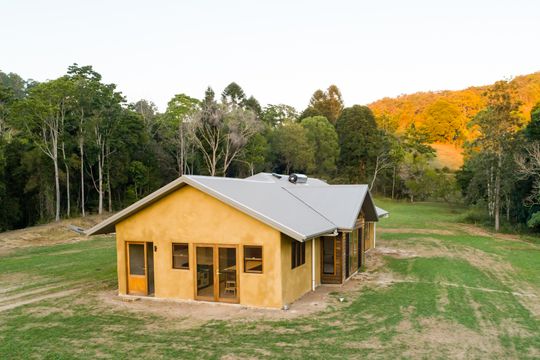
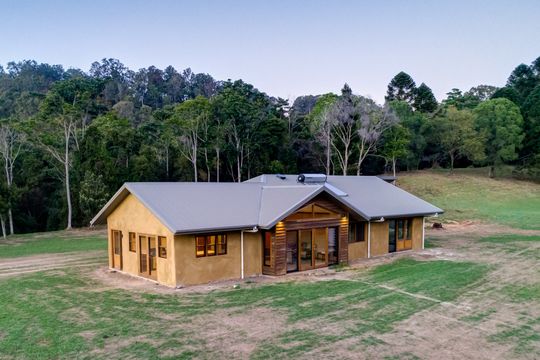
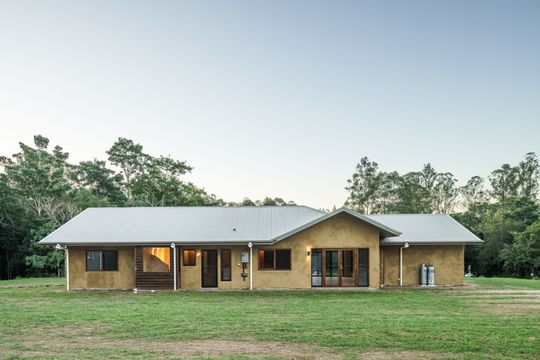
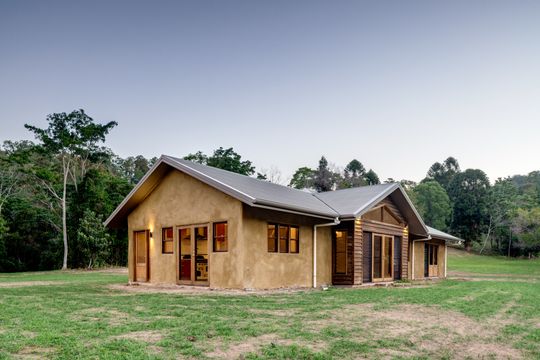
Mark and Megan were committed to creating a home with excellent thermal efficiency and low embodied energy. They found designer Brett Grimley of Ecolibrium Designs, who shared their enthusiasm for hempcrete. The brief was simple: a livable, energy-efficient home that minimised the need for heating and cooling. Brett’s design included a north-facing passive solar layout with well-placed louvre windows for cross ventilation.
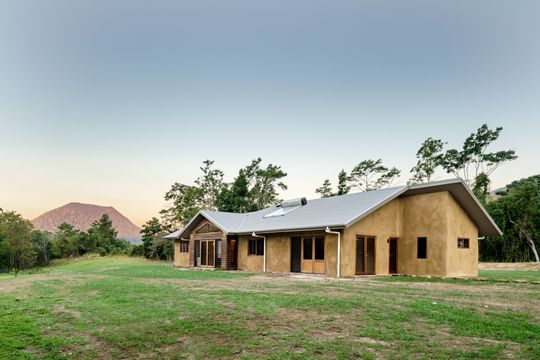
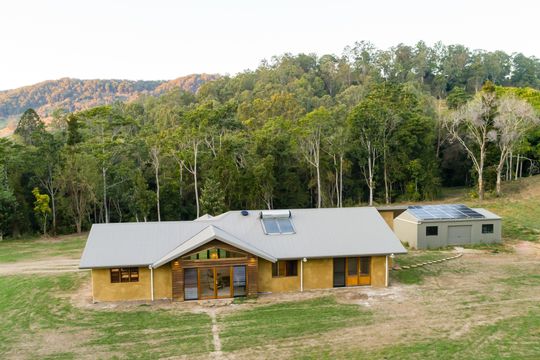
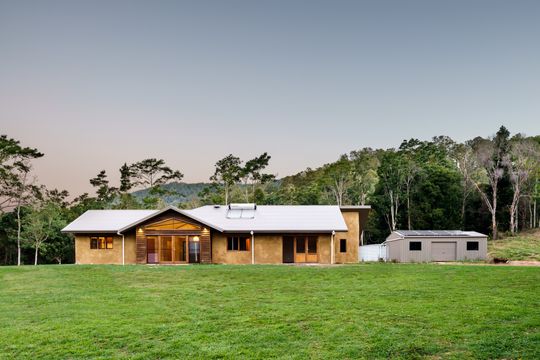
With any unconventional building material, it's important to adapt to the unique properties of the material. In the case of hempcrete, it's important the material has a 'hat' and 'boots' to protect it from the elements. The roof forms that hat component, while the windows and wet areas are carefully detailed to ensure the hempcrete doesn't get wet. The timber frame of the home is fully encapsulated in hempcrete, with a lime render exterior to ensure durability. Hempcrete installer Tom Cunliffe of Resolute Construction Solutions experimented with a sprayed hempcrete technique to make the material more cost-effective. This method, involving spraying hemp and lime simultaneously, provided a beautiful rendered finish both inside and out. This technique removes the need to hand tamp the hempcrete which is a major part of the labour and cost associated with the material. This has the potential to make hempcrete cost-competitive with brick veneer, but with much better insulative properties.
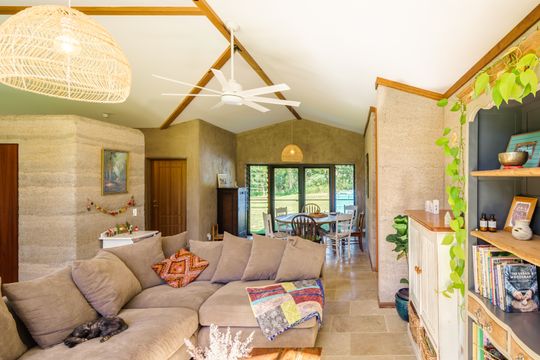
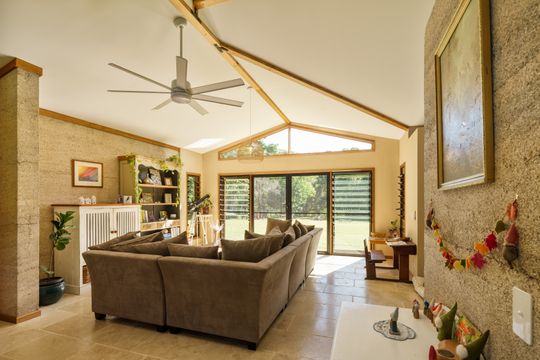
The home and layout is designed to adapt over the years at Mark and Megan's young daughters grow and the family's needs change. Thanks to the use of hempcrete, it's also comfortable year-round and has an innate sense of security and comfort thanks to the thickness of the walls. Another huge advantage of the use of hempcrete is its humidity regulating effects in the Sunshine Coast's subtropical climate. Despite initial concerns about mold in a subtropical climate, the hempcrete has excelled in regulating humidity and maintaining indoor air quality. The house remains comfortable year-round, with minimal heating in winter and effective cross-ventilation in summer.
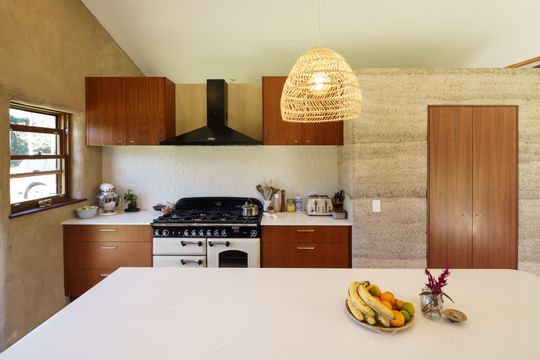
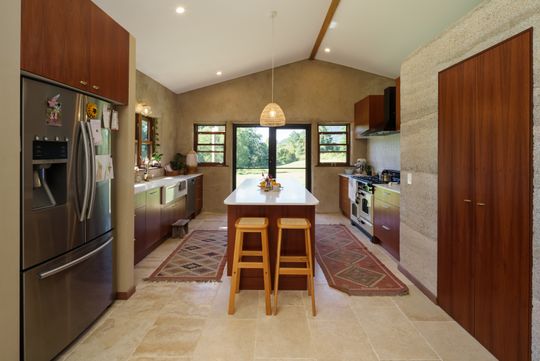
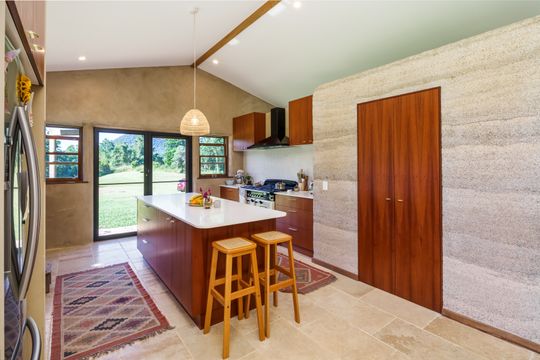
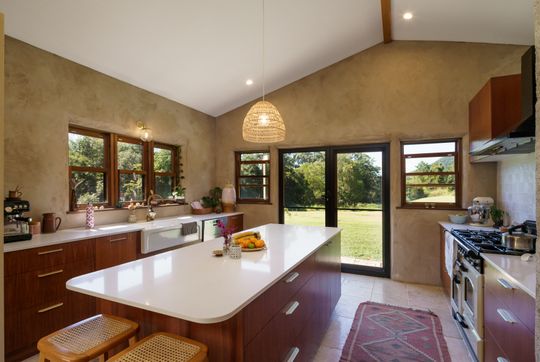
The home boasts numerous sustainable features:
Passive Design: 300mm-thick hempcrete walls for insulation, a ground-connected concrete slab for thermal mass, and deep eaves for shading. Active Heating & Cooling: Ventair Royale II DC ceiling fans and a rarely used Jotul F3 wood heater. The Solartube Solar Star ventilator regulates roof cavity temperatures. Renewable Energy: A 6.6kW off-grid solar PV system with 14.4 kWh battery storage. Water Saving: An 80,000L rainwater tank supplies all household and garden needs. Practical Details
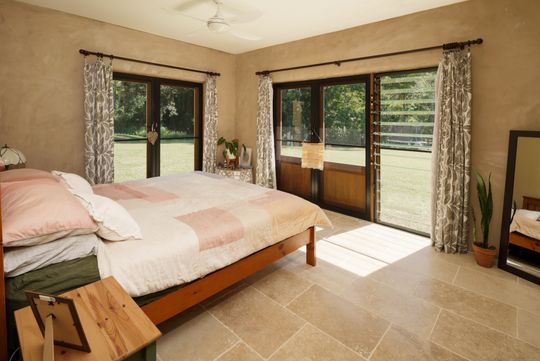
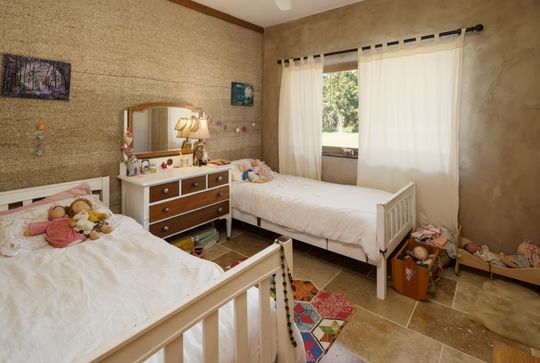
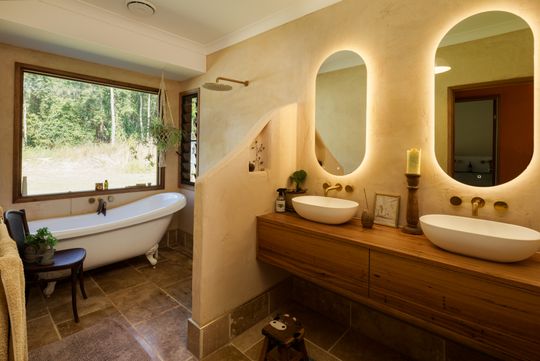
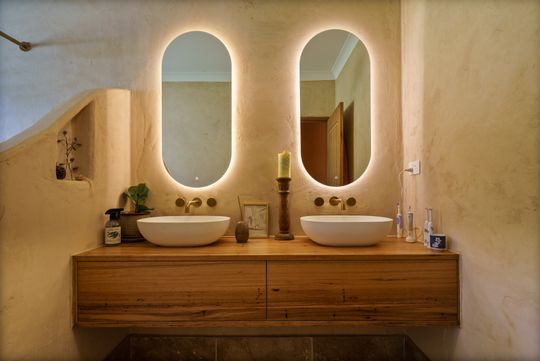
Mark and Megan’s off-grid family home is not just a testament to sustainable living but also to the potential of hempcrete as a cost-effective and efficient building material. Their journey from a rundown shed to a beautiful, functional home on the Sunshine Coast is a remarkable example of dedication and innovation in sustainable architecture.
Interested in a hempcrete home of your own? [Get in touch with Ecolibrium Designs!](
mailto:catherine@ecolibrium.com.au?bcc=hello@lunchboxarchitect.com&subject=Hempcrete%20House%20on%20Lunchbox%20Architect%21)